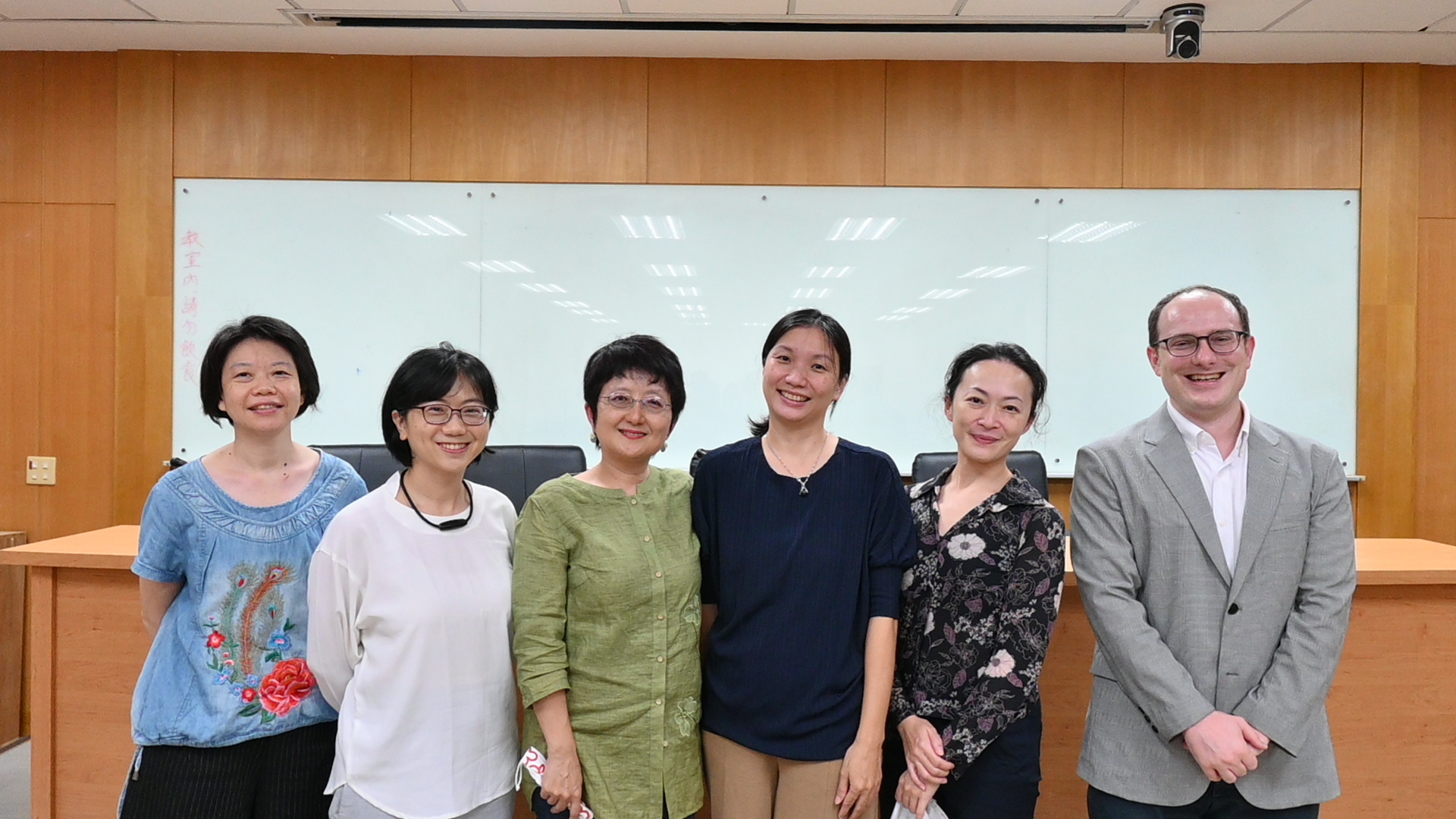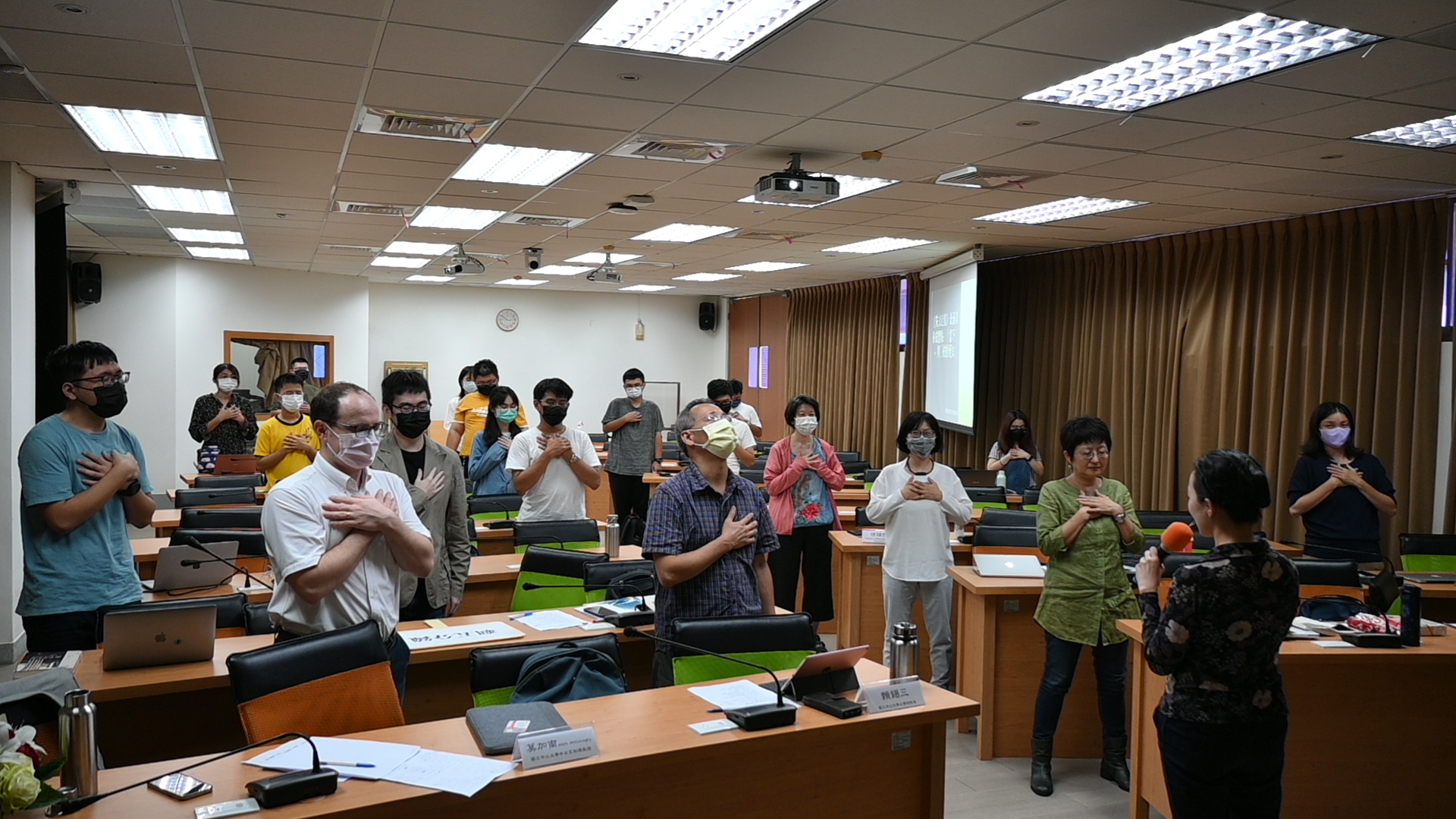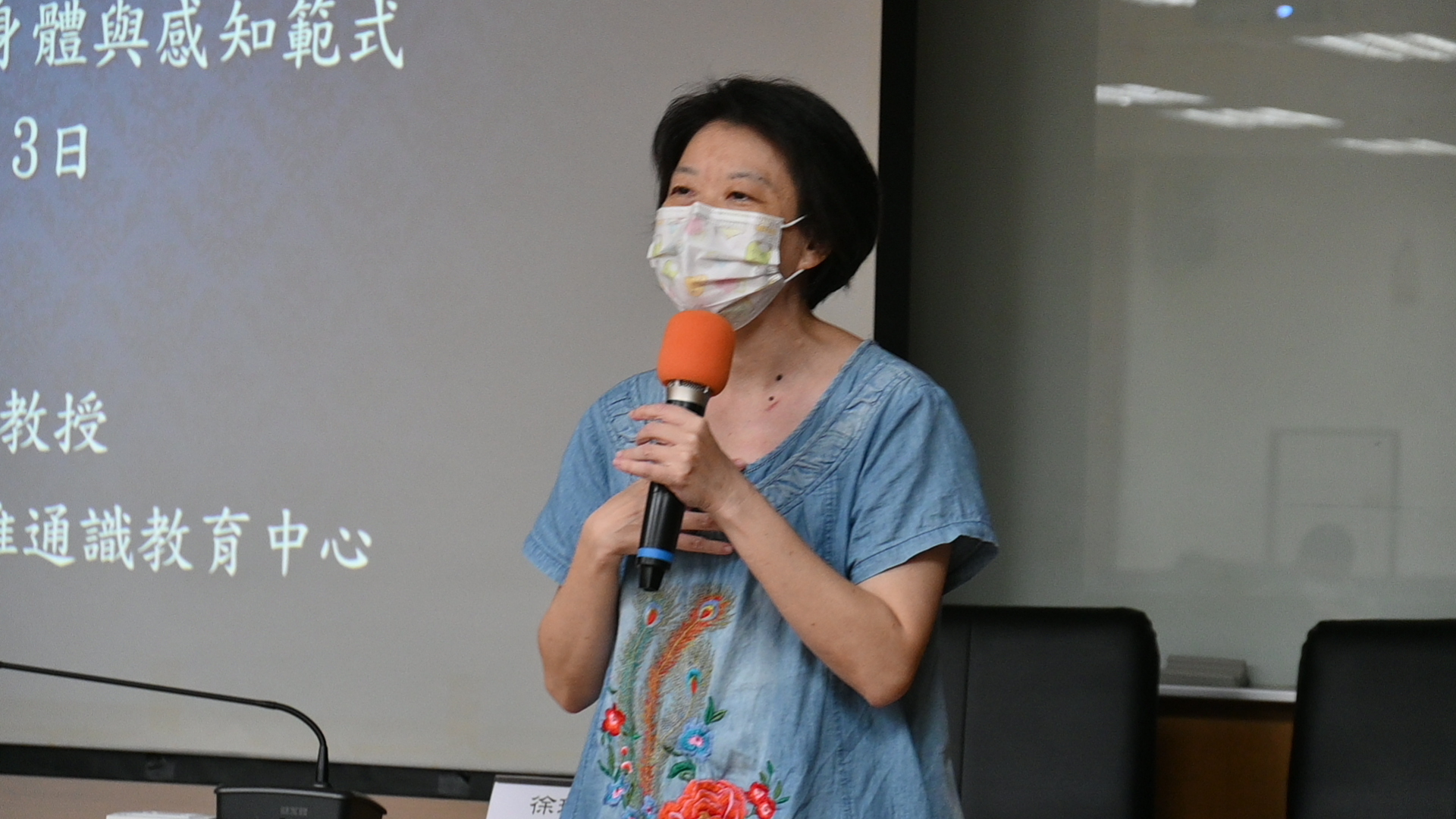The Global Sinology Forum at NSYSU held the Dance Forum for Chinese and Western exchanges and cross-border interactions



2023-05-23
(Provided by College of Liberal Arts) The National Sun Yat-Sen University (NSYSU) College of Liberal Arts and Higher Education Sprout Project "The Transcultural Sino-Island: The Global Sinology Forum at NSYSU" funded by the Ministry of Education held the "Dance Forum: Re-exploring the Cultural Body and Perception Paradigm," which is one of the "Island Dialectics" series of forums. In addition to retaining the rich academic exchanges across Chinese and Western cultures in the past, the event also added cross-border interactions between body, performance, and dance art. The forum allowed every performing artist with practical experience to bring the audience first-hand written records and share and generate more sparks through cross-university and cross-field cooperation.
Hsi-San Lai, Dean of the NSYSU College of Liberal Arts, hosted and stated that the Island Dialectics had held many series activities. The theme included calligraphy, painting, novels, opera, etc. It is also hoped that we can continue to explore the inheritance relationship between Taiwanese tradition and Chinese culture from the perspective of dance and make dance research a topic. The Principal Investigator of the project, Mark Frederick McConaghy, Assistant Professor of the Department of Chinese Literature at NSYSU, also believes that this forum can better understand the history of Taiwan after 1949 from a cultural perspective, transcend the division of binary opposition and keep the openness of culturally mixed exchanges.
Ssu-Ching Chang, Associate Professor of the Department of Dance at the National Taiwan University of Sport, discovered from her own experience in dance learning and discussed the first generation of post-war choreographer Feng-Shueh Liu, Japanese overseas Chinese Nan-Ya-Jen (real name Chuan-Huang Cheng), and two dancers from Cloud Gate, Hui-Chen Ho, and Shu-Chi Cheng, that 1970 Modern dance around the age is not a highly homogeneous interpretation of Chineseness, but a multi-faceted expression and display of different cultural contents.
Yalan Lin, Assistant Professor of the School of Dance at Taipei National University of the Arts, introduced the traditional Liyuan Opera "Zhu-Wen and the Ghost" and shared her experience as a performer, how to learn from Nanguan, Liyuan Opera, Butoh, court dance of Javanese, and drama master Eugenio Barba considerable inspiration in training. At the same time, she also shared how Butoh can train the inner thoughts and imagination of the dancers through "demonstration, hearing, vision, and imagery" to help stretch the body truly.
I-Lien Ho, Assistant Professor of the Department of Theater Arts at NSYSU, introspected anthropocentrism, which destroys the environment and causes the sequelae of individual fatigue and depression. She hoped to bring performing arts into urban life through the "Different Body Project." Not only can the body be decolonized and enter the "wilderness" where the mind is freely released, but also the mind can truly enter the "ecological self" from the "small self" and "social self" to coexist with nature and art.
Wei-Ying Hsu, Assistant Professor of the Liberal Education Center at the National Chin-Yi University of Technology, introduced Shao-Lu Liu, a modern dancer and founder of Taipei Dance Circle. He tried to abandon the existing training in ballet, modern dance, and Peking opera techniques, aiming to relax and sharper the perception of body and mind and return to the "originality of the body." Therefore, he developed the baby oil series of dances, which not only return to the innocence of babies, but oil is also used to break the dancers' inertia and rediscover the connection of the body's "qi, body, and mind."
Ya-Ping Chen, Associate Professor of the Graduate Institute of Dance Theory at Taipei National University of the Arts, pointed out that the contemporary era is deeply influenced by "identity politics" and is prone to fall into the solidified concept of "subject." Furthermore, she believed that Zhuangzi's thought of the equality of things and transformation of things and the explanation of Gilles Deleuze's discussion of molecular movement perception and "becoming" could clarify each other. Ya-Ping Chen stated that the body is an essential interface of culture, just like Legend Lin Dance’s technique is slow work, the becoming work really into the molecular level. Therefore, dance research can break away from the existing research perspective and context, allowing different fields and subjects more opportunities to dialogue and exchange.
(Edited by Public Affairs Division)
(Provided by College of Liberal Arts) The National Sun Yat-Sen University (NSYSU) College of Liberal Arts and Higher Education Sprout Project "The Transcultural Sino-Island: The Global Sinology Forum at NSYSU" funded by the Ministry of Education held the "Dance Forum: Re-exploring the Cultural Body and Perception Paradigm," which is one of the "Island Dialectics" series of forums. In addition to retaining the rich academic exchanges across Chinese and Western cultures in the past, the event also added cross-border interactions between body, performance, and dance art. The forum allowed every performing artist with practical experience to bring the audience first-hand written records and share and generate more sparks through cross-university and cross-field cooperation.
Hsi-San Lai, Dean of the NSYSU College of Liberal Arts, hosted and stated that the Island Dialectics had held many series activities. The theme included calligraphy, painting, novels, opera, etc. It is also hoped that we can continue to explore the inheritance relationship between Taiwanese tradition and Chinese culture from the perspective of dance and make dance research a topic. The Principal Investigator of the project, Mark Frederick McConaghy, Assistant Professor of the Department of Chinese Literature at NSYSU, also believes that this forum can better understand the history of Taiwan after 1949 from a cultural perspective, transcend the division of binary opposition and keep the openness of culturally mixed exchanges.
Ssu-Ching Chang, Associate Professor of the Department of Dance at the National Taiwan University of Sport, discovered from her own experience in dance learning and discussed the first generation of post-war choreographer Feng-Shueh Liu, Japanese overseas Chinese Nan-Ya-Jen (real name Chuan-Huang Cheng), and two dancers from Cloud Gate, Hui-Chen Ho, and Shu-Chi Cheng, that 1970 Modern dance around the age is not a highly homogeneous interpretation of Chineseness, but a multi-faceted expression and display of different cultural contents.
Yalan Lin, Assistant Professor of the School of Dance at Taipei National University of the Arts, introduced the traditional Liyuan Opera "Zhu-Wen and the Ghost" and shared her experience as a performer, how to learn from Nanguan, Liyuan Opera, Butoh, court dance of Javanese, and drama master Eugenio Barba considerable inspiration in training. At the same time, she also shared how Butoh can train the inner thoughts and imagination of the dancers through "demonstration, hearing, vision, and imagery" to help stretch the body truly.
I-Lien Ho, Assistant Professor of the Department of Theater Arts at NSYSU, introspected anthropocentrism, which destroys the environment and causes the sequelae of individual fatigue and depression. She hoped to bring performing arts into urban life through the "Different Body Project." Not only can the body be decolonized and enter the "wilderness" where the mind is freely released, but also the mind can truly enter the "ecological self" from the "small self" and "social self" to coexist with nature and art.
Wei-Ying Hsu, Assistant Professor of the Liberal Education Center at the National Chin-Yi University of Technology, introduced Shao-Lu Liu, a modern dancer and founder of Taipei Dance Circle. He tried to abandon the existing training in ballet, modern dance, and Peking opera techniques, aiming to relax and sharper the perception of body and mind and return to the "originality of the body." Therefore, he developed the baby oil series of dances, which not only return to the innocence of babies, but oil is also used to break the dancers' inertia and rediscover the connection of the body's "qi, body, and mind."
Ya-Ping Chen, Associate Professor of the Graduate Institute of Dance Theory at Taipei National University of the Arts, pointed out that the contemporary era is deeply influenced by "identity politics" and is prone to fall into the solidified concept of "subject." Furthermore, she believed that Zhuangzi's thought of the equality of things and transformation of things and the explanation of Gilles Deleuze's discussion of molecular movement perception and "becoming" could clarify each other. Ya-Ping Chen stated that the body is an essential interface of culture, just like Legend Lin Dance’s technique is slow work, the becoming work really into the molecular level. Therefore, dance research can break away from the existing research perspective and context, allowing different fields and subjects more opportunities to dialogue and exchange.
(Edited by Public Affairs Division)
Click Num:
Share
